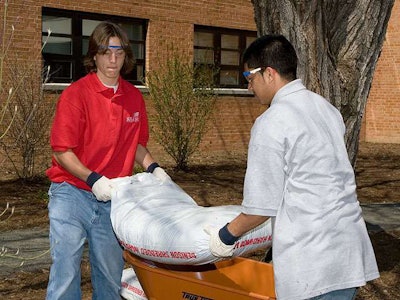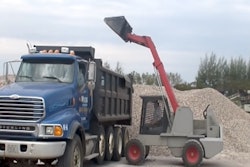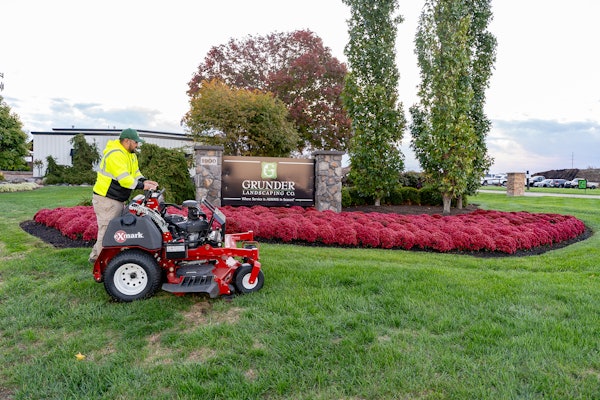
Young workers may not know what seems obvious to a seasoned employee. Take the time to make sure they take the proper safety precautions while on the job.
Photo: OSHA
When you’re looking for seasonal workers to augment your workforce for the summer, teenagers can be a promising resource, but it is important to stress the importance of safety to them.
According to the National Association of Landscape Professionals (NALP), many landscape contractors note that June, July and August are when most of their safety incidents occur. Coupling new employees with the busiest time of the year can create ideal conditions for corner cutting and unsafe practices.
Insurance claim data shows that employees with less than three months of experience are twice as likely to be injured than those with three to six months of experience. Also, even though they work fewer hours than adults, teenage workers get injured at a higher rate.
This isn’t to say that you should never hire a teen but that these issues are easily avoidable with the proper precautions and training. Here are some of the steps you should follow and regulations you should be mindful of.
All new employees should have a safety orientation and crew leaders should conduct tailgate training when there are new members on their crew. Just like all other employees, teens should be instructed on the importance of personal protective equipment (PPE) and how it’s properly worn.
Stress to teenage workers that they should never take shortcuts by removing safety devices or failing to wear proper PPE.
Maintain a written cell phone policy and enforce it when teens, or any other employee, violates it. Personal cell phone use should be restricted to scheduled breaks or after work, except for emergencies.
Encourage young workers to ask questions. Many are afraid of sounding stupid so make sure supervisors, trainers and other employees reassure teens that their questions are welcome.
When training a teen worker give them clear instructions, ask them to repeat the instructions, show them how to perform the task and watch them as they perform it and correct any mistakes. This may sound time-consuming but it ensures that the work is done right the first time and the worker knows the safe and proper procedure.
Make sure that younger workers are paired up with a more experienced team member who can recognize and handle certain hazardous situations. All employees should know what jobs teenage workers are permitted to perform so they can step in if they see the new employee undertaking a task they shouldn’t.
Keep in mind what risks each piece of equipment poses before deciding what your teen workers are allowed to operate. While some machinery is off-limits due to federal law, state child-labor laws may be stricter so it is important to study your particular state’s legislature.
Rules to remember:
- Child labor laws prohibit 16-year-olds from operating a motor vehicle at work and allow it under limited circumstances for 17-year-olds.
- Employers are required to provide training specific to each machine you require the worker to operate.
- Teens under the age of 18 are not permitted to be the operator or helper of chainsaws or wood chippers nor are they allowed to handle the maintenance of this type of equipment.
- Young workers under the age of 18 are not allowed to manually excavate or work in a trench deeper that four feet at any point.
For more information about federal youth employment provision applicable to nonagricultural occupations, click here.









